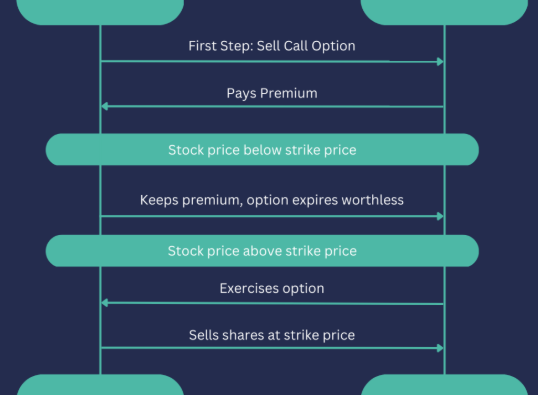
Equity research is a sought-after field within finance that combines data analysis, financial modeling, and strategic thinking to evaluate investment opportunities. If you’re passionate about markets and enjoy interpreting numbers to guide investment decisions, becoming an equity research analyst could be the right path for you. Here’s a structured guide to help you navigate your way into this profession.
What Does an Equity Research Analyst Do?
An equity research analyst studies public companies and sectors to assess their financial performance and market potential. Their insights help institutional investors, fund managers, and clients make informed decisions about buying, holding, or selling stocks. Analysts typically produce reports that include earnings projections, valuation models, and recommendations based on in-depth research.
This role involves more than crunching numbers. Analysts must evaluate industry dynamics, monitor economic trends, and articulate their findings through written reports and presentations.
Step 1: Obtain the Right Education
A strong academic background in finance, economics, accounting, or business is essential. Most entry-level positions require at least a bachelor’s degree. However, pursuing advanced degrees like an MBA or a Master’s in Finance can boost your qualifications and improve your job prospects, especially for competitive roles at major investment firms.
Step 2: Earn Relevant Certifications
Earning the Chartered Financial Analyst (CFA) designation is highly regarded in the industry. It signals a solid grasp of investment principles, ethics, and portfolio management. While not always mandatory, the CFA can distinguish you from other candidates and open doors to more advanced roles.
Step 3: Build Critical Skills
To thrive as an equity research analyst, you need a mix of technical and soft skills:
- Analytical Thinking: Interpreting complex data and identifying key insights is a core part of the role.
- Financial Modeling: Creating and analyzing models to project company performance and determine valuation.
- Market Awareness: Understanding economic indicators, policy changes, and global events that affect markets.
- Communication: Writing detailed reports and presenting investment ideas clearly to clients or internal teams.
- Attention to Detail: Accuracy in numbers and consistency in analysis are non-negotiable.
- Time Management: Meeting deadlines and delivering timely analysis in a fast-paced environment is crucial.
- Accounting Proficiency: A deep understanding of financial statements is necessary for accurate assessments.
- Research Ability: Gathering reliable data from multiple sources strengthens your analysis.
- Problem-Solving: Making data-driven decisions and identifying risks and opportunities in investments.
Step 4: Gain Real-World Experience
Internships at investment banks, asset management firms, or research companies offer exposure to how equity analysis works in practice. Internships help you build connections and give employers confidence in your ability to handle live assignments.
You can also participate in university investment clubs, stock market competitions, or student-run funds to gain experience. These activities demonstrate initiative and provide opportunities to work with real data in a simulated environment.
Step 5: Network Strategically
Networking is essential for career growth in finance. Join professional organizations and attend conferences and webinars to connect with experienced analysts and hiring managers. Platforms like LinkedIn can help you build your professional presence and reach out to industry peers. Building meaningful relationships can lead to mentorship opportunities and open doors to job prospects.
Step 6: Keep Learning and Improving
Financial markets evolve constantly, so staying current with industry trends, regulatory updates, and new valuation methods is vital. Reading analyst reports, following market news, and continually refining your skills can give you an edge in this dynamic profession.
Career Path and Progression
Entry-Level Roles: You may start as a research associate or junior analyst, supporting senior team members by gathering data and assisting with reports.
Mid-Level Roles: With experience, you can progress to become a lead equity research analyst, responsible for covering specific sectors and publishing detailed investment reports.
Advanced Roles: Career advancement may lead to roles such as associate director, research head, or transitioning into portfolio management, fund management, or strategy roles.
Salary Expectations
Compensation varies by location, firm, and experience. In India, the average annual salary is approximately ₹9.9 lakhs, while in the United States, equity research analysts earn around $112,000 annually, with potential bonuses based on performance.
Common Questions About Equity Research Careers
Is it a stressful job?
Yes, deadlines, market volatility, and high expectations can create pressure. However, strong organizational skills can help manage the workload.
Where do they work?
Analysts typically work for investment banks, asset management firms, mutual funds, hedge funds, and independent research organizations.
Is CFA mandatory?
Not required, but highly recommended. It enhances credibility and knowledge, especially for those without advanced academic qualifications.
How do I learn equity research?
Combine academic learning with practical exposure. Take courses in finance, read market research reports, practice building models, and gain experience through internships or entry-level roles.
Is it hard to break into?
It can be competitive. Strong academics, certifications, and hands-on experience improve your chances of landing a role in this field.
Final Thoughts
Becoming an equity research analyst takes effort, discipline, and a willingness to constantly learn. It’s a challenging yet rewarding path for those passionate about financial markets and investment strategy. With the right combination of education, skills, experience, and networking, you can carve a successful career in this ever-evolving domain.
If you’re serious about this profession, start preparing early. Seek internships, earn certifications, and engage with the industry—because in equity research, staying ahead of the curve is everything.









